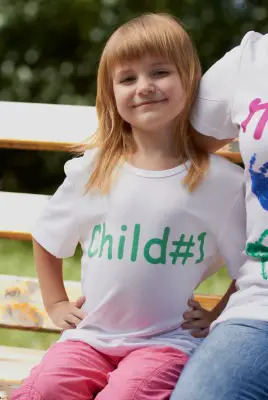We all want our kids to stand out in a crowd, be the leader of the pack, and most of all, be confident in their abilities to move forward in this world. But what about the quiet kids – can they be leaders? And how do we teach any child the skills they need to be a leader and the value of learning new things? We spoke to Shakeh Tashjian, the director of Dwight-Englewood School Summer Connections program in Englewood, New Jersey, to discover how to teach your child leadership skills and a love of learning for good measure!
 Do you wonder how to make your child to be a leader in his or her peer group? We spoke to Shakeh Tashjian, the director of Dwight-Englewood School Summer Connections program in Englewood, New Jersey, to discover how to teach your child leadership skills and a love of learning for good measure!
Do you wonder how to make your child to be a leader in his or her peer group? We spoke to Shakeh Tashjian, the director of Dwight-Englewood School Summer Connections program in Englewood, New Jersey, to discover how to teach your child leadership skills and a love of learning for good measure!
We all want our kids to stand out in a crowd, be the leader of the pack, and most of all, be confident in their abilities to move forward in this world. But what about the quiet kids – can they be leaders? And how do we teach any child the skills they need to be a leader and the value of learning new things? Dwight-Englewood Summer Connections program in Englewood, New Jersey, specializes in engaging learners in the joy of discovery through a variety of experiences, and creates leaders in the process. We spoke with director Shakeh Tashjian to find out how you can best help your children become a leader, though that role may look different on every child.
How can parents encourage their children to become strong leaders?
If you want a child to be a strong leader, you’ve got to build up their comfort level by letting them take risks. Not crazy risks, but things that will help build their confidence and make them feel, “I could handle this challenge if it were ahead of me.” Register them for a debate class where they have to actually do research and prepare themselves and then stand up in front of everyone and present what they’ve learned. Sign them up for an activity that has a showcase event, like a robotics class where at the end there’s a little competition where they have to make their robot go in a certain maze or do certain things. The point of these activities is that they are putting themselves out there in a nurturing environment. It’s a safe place where they can test their strengths and build their confidence and show themselves that they are capable of doing this, and at the same time they’re showing others that they are capable of doing it.
The other piece of teaching your child to become a leader is teaching kids how to communicate and how to interact with their peers whether or not they are their best friends. In other words, you want diversity. You don’t want your child to hang out with the same kind of kids every day because that puts them back in their comfort zone and doesn’t make them push through and see if there’s anything else they can try.
Introducing intellectual risks and diversity are the best ways to make your child a leader.
Are there some children who are simply not cut out to be leaders?
There are many different kinds of leaders. Sometimes being able to listen to everyone is the most important key and just because it looks like a child isn’t taking initiative doesn’t mean they are not in their own way interacting with the group and being part of that group.
If a kid is going to stand up in a drama class and just cry the whole time, that is not the best place for them because they’re not ready for that kind of leadership yet. But they’re developing their own kind of leadership and there are different forms of it. Parents should not expect “being a leader” to look a certain way, make assumptions, or push it on their child at all costs. Realize that every child does have the ability to do contribute somehow within their group and that’s important and needs to be praised.
How can encouraging my child to follow his passion make him a better all-around student?
That is enormous. In elementary school, middle school, high school, and even in college to a certain degree, we force children to try everything. And that’s as it should be; if the kids are already pigeonholed by the time they’re four, what’s the point if they’re not going to try everything? You never know what’s going to spark something for them.
But you don’t want to focus both on a new skill and on building their confidence at the same time. So if there’s something they have a passion for, let them take that and build their confidence in that. Maybe they’re a computer programmer instead of the drama kid and they’re going to be able to teach the kids around them and that is going to make them feel incredibly good and incredibly smart and comfortable and confident and if that’s the avenue they choose then so be it. To force someone to do both, to say, “hey feel comfortable with this” and “you don’t know what you’re doing,” that might be a little bit much.
For the summer, specifically, I’m always looking for it to be a good and fun and safe and enjoyable enriching learning experience because the whole point is that they’re learning to love learning, not hate it.
How does exposure to nature (such as through your Nature Sanctuary) benefit children?
Getting kids out of the classroom in general reminds them that learning isn’t just something that comes out of a book. It’s something that is happening all around us and it reminds kids, and even adults, to open their eyes and look around them and learn from the world around them.
There’s such a complex world out there, even if you just think of biodiversity – it’s amazing how one system interacts with another and they actually get to see that in action. What is a better way to learn something than actually seeing it in action? So whether it’s the nature sanctuary, or we have the DE International where kids actually go to Spain and learn Spanish in the university there, whatever the case is, they’re actually doing it, not just reading or talking about it, and that’s how they’re learning.
Shakeh Tashjian is the director of Dwight-Englewood School Summer Connections program in Englewood, New Jersey.



















